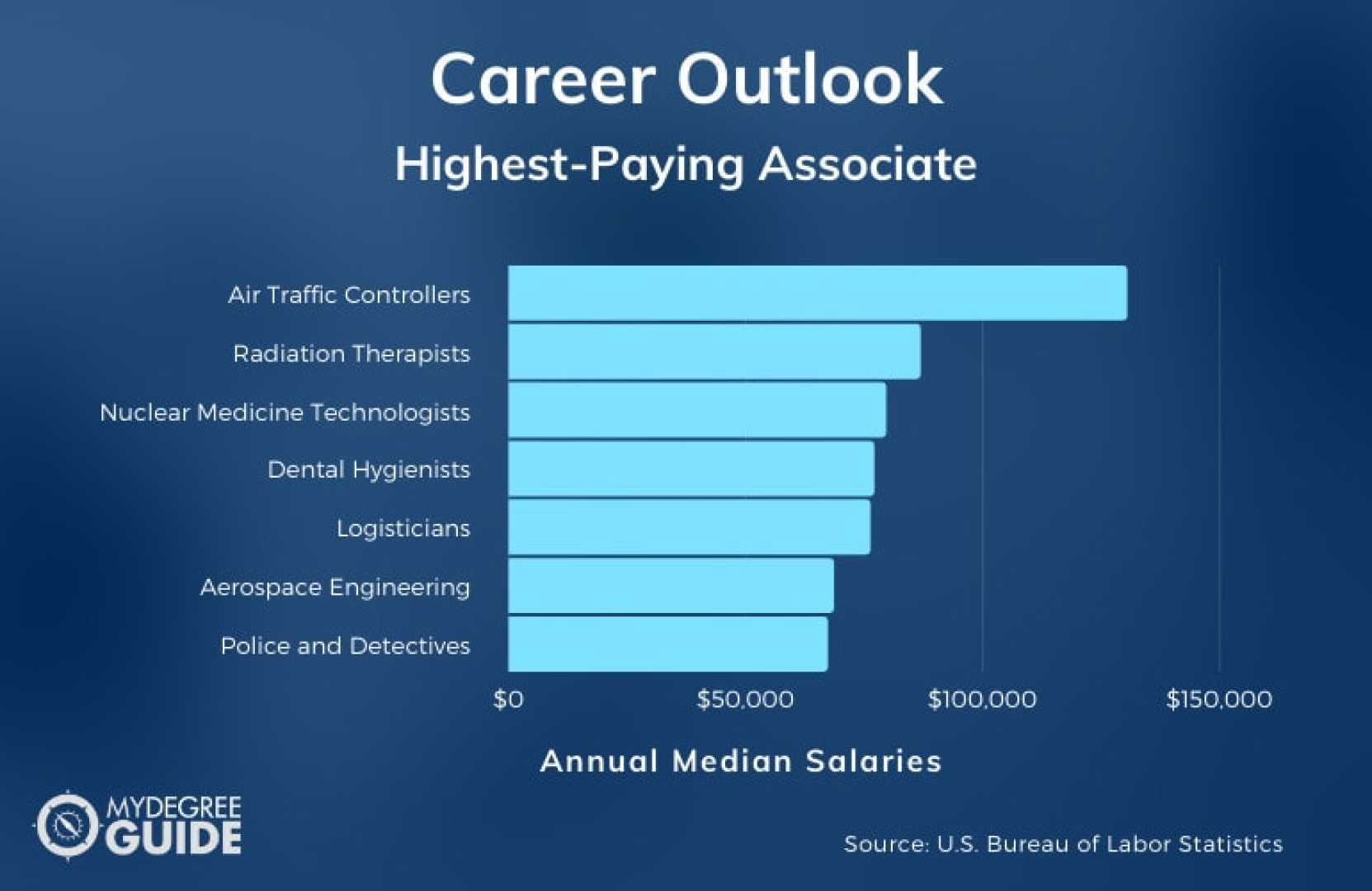Education
Exploring High-Paying Careers with an Associate Degree

WASHINGTON, D.C. — As we advance into 2025, job seekers holding associate degrees are discovering a promising job market with competitive salaries. A recent analysis from Resume Genius reveals that roles requiring these degrees are gaining traction, especially in sectors like healthcare and technology. According to the U.S. Bureau of Labor Statistics (BLS), jobs for associate degree holders are projected to grow by 6.3% from 2023 to 2033, with a median annual wage of $62,180.
This growth trend signifies a significant shift in the employment landscape, where practical experience and certifications are becoming more valuable than traditional four-year degrees. “In 2025, wages are up across the board for every occupation on our list,” said Eva Chan, a career expert at Resume Genius. “This highlights not only growing employer demand but also the potential to earn more in fields like healthcare, aviation, and technology.”
The analysis pinpointed ten of the highest-paying associate degree jobs for 2025, including:
- Air Traffic Controller: $137,380 median salary, with 24,000 available jobs and 3% growth.
- Nuclear Technician: $101,740 median salary, with 5,400 available jobs and 6% growth.
- Radiation Therapist: $98,300 median salary, with 17,200 available jobs and 3% growth.
- Nuclear Medicine Technologist: $92,500 median salary, with 17,800 available jobs and a slight decline in growth.
- Dental Hygienist: $87,530 median salary, with 214,100 available jobs and 9% growth.
- Diagnostic Medical Sonographer: $80,850 median salary, with 143,400 available jobs and 11% growth.
- Respiratory Therapist: $77,960 median salary, with 133,900 available jobs and 13% growth.
- Aerospace Engineering Technician: $77,830 median salary, with 11,000 available jobs and 8% growth.
- Radiologic and MRI Technologist: $76,020 median salary, with 271,200 available jobs and 6% growth.
- Aircraft and Avionics Mechanic: $75,400 median salary, with 163,300 available jobs and 5% growth.
Chan encourages candidates to highlight practical experience on their resumes, including internships and relevant coursework. “When crafting a resume, candidates should include detailed examples of their projects or relevant coursework that align with job requirements,” Chan advised.
Certifications are also beneficial for job seekers, prompting experts to recommend additional education, such as online bachelor’s degree programs and specific technical certifications. “Certifications like CompTIA A+ showcase expertise and expand job prospects,” they noted.
As the employment sector continues to evolve, experts stress the importance of conducting thorough job research specific to one’s associate degree. “Careers in nursing, technology, engineering, healthcare administration, or business management frequently value the practical training afforded by a two-year degree,” the experts shared.
The emphasis on skills-based hiring is gaining traction, according to Marlene Dunne, an expert advisor at a leading organization. “Shifting to assess skills—regardless of where they were acquired—could help organizations tap into talent pools that are currently being overlooked,” Dunne explained. A report by the BLS indicates that more than 60% of employers previously rejected qualified candidates based solely on their lack of a four-year degree.
Stephane Rivard, CEO of a prominent hiring firm, echoed this sentiment, stating that focusing on skills can improve hiring practices. “Skills-based hiring can help companies hire the best candidates while promoting fair hiring practices,” Rivard said. “Research shows that skills-based hires have a longer tenure than traditional hires.”
The trend towards more inclusive hiring practices is a positive development for many job seekers, particularly those investing in associate degrees for high-demand roles. “Skills-based hiring is changing how employers evaluate candidates,” Chan added. “Associate degrees are a great fit for this shift—they’re faster to attain, more affordable, and provide the skills employers want.”
In conclusion, the landscape for job seekers with associate degrees remains hopeful as multiple industries actively seek skilled workers. This evolving perspective underscores the value of practical experience and certifications, making it an opportune time for degree holders to pursue rewarding careers.












